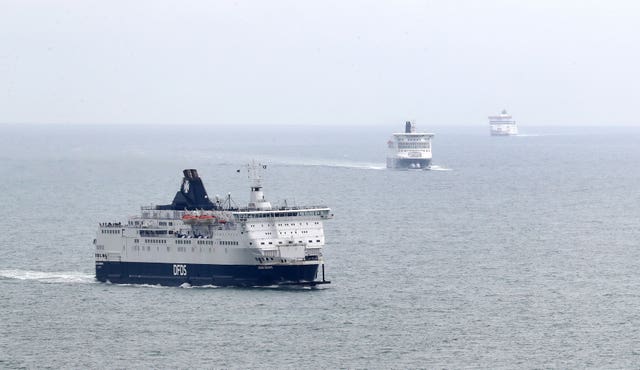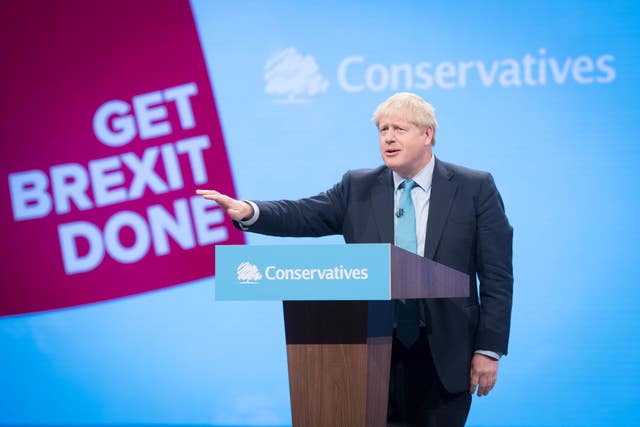Brexit: Will the UK crash out of the EU without a deal on October 31?
The Prime Minister is seeking a resolution after sharing his proposals with the EU.

The Prime Minister, who has said a no-deal Brexit would represent a failure on all sides, is determined to leave the European Union on October 31 “do or die” – but whether the UK will be leaving with a deal is far from certain.
Boris Johnson’s Brexit plan – which he hailed a “fair and reasonable compromise” that all sides can agree on – has sparked concerns in Dublin, Belfast and Brussels.
A day after he shared his proposals with the EU, Mr Johnson himself acknowledged that they are “some way from a resolution”.
– So can a deal be done before October 31?
Mr Johnson said a deal would need to be largely completed by October 11, the day the agenda for the October 17 European Council summit of EU leaders is set.
He told the Sun 10 days “should be enough”, adding: “If there’s a deal to be done, it could be done in that time.”
Number 10 sources have said the proposals would be a final offer and if the EU refused to engage then the UK would walk away from talks until after it has left the bloc – but that remains to be seen.
– Who has concerns about Mr Johnson’s proposals and why?
European Commission president Jean-Claude Juncker and Irish Taoiseach Leo Varadkar both expressed concern that the return of customs controls threatened the Good Friday Agreement guarantee to maintain an open border with the Republic.
Mr Varadkar said the proposals “do not fully meet the agreed objectives” of the backstop, while the commission president said there were some “problematic points”.
Labour leader Jeremy Corbyn branded the proposals “reckless” and is among those who believe it would jeopardise the Good Friday Agreement.
Political parties in Northern Ireland, not counting the DUP, have also expressed major concerns, with Sinn Fein deputy leader Michelle O’Neill saying the proposals “drive a coach and horses” through the Good Friday Agreement.
– What if a deal isn’t reached?
The UK will leave the customs union and single market, the measures which currently keep trade flowing freely.
The border between Northern Ireland and the Republic will, therefore, become the frontier between the European Union and a “third country” outside its rules.
Mr Varadkar has promised to do “everything we can to avoid checks on or near the border” but inspections would take place at ports, airports and businesses.
The UK’s no-deal planning chief Michael Gove told MPs “we will have no checks at the border and no tariffs” but “we wait to see what Ireland and the EU Commission will decide”.
– What problems will a no-deal scenario potentially throw up and is the country prepared?
There are fears that leaving the EU without a deal in place could hit imports of food and medicine.
Just this week, NHS Wales unveiled a so-called “Brexit Warehouse” to store around 1,000 extra products including medical gloves, needles and dressings at a cost of about £5 million.
Members of the public have been discouraged from panicking and stockpiling themselves.
Mr Gove last week claimed he has received assurances over readiness from different sectors ahead of the UK’s planned departure from the EU on October 31.

– Is the Government ready for a worst-case scenario?
A secret Whitehall dossier, relating to Operation Yellowhammer, outlining the disruption the UK could face in the event of a no-deal Brexit, was released by the Government last month after a demand by MPs.
The document claims to outline the Government’s “reasonable worst-case planning assumptions”, and warns that some fresh supplies will decrease.
It suggests that there may be a rise in public disorder and community tensions, and says the flow of cross-Channel goods could be reduced to 40% of current rates on day one.
Mr Gove has said that the Government is taking “and have taken” steps to mitigate the scenarios outlined in the document.

– So will the UK be leaving the European Union on October 31?
If you believe Mr Johnson, then it’s an emphatic yes.
But the Benn Act – the legislation rushed through Parliament after backbenchers took control of the Commons agenda – requires the Prime Minister to seek a delay to Brexit if MPs have not approved a deal, or agreed to leave the EU without one, by October 19.
Mr Johnson has repeatedly said he will both obey the law and meet the Halloween deadline with or without a deal – but he has not been clear about how he intends to do both things.
It could all result in yet another constitutional crisis being played out in the courts.





